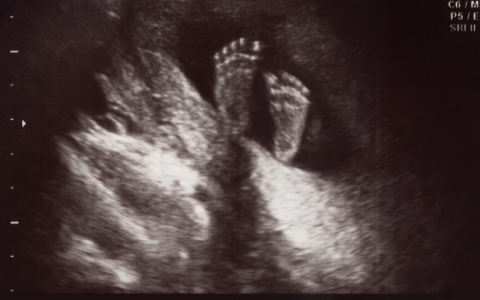Does Tubal Blockage Affect Fertility? Five Symptoms, Causes, and Diagnostic and Treatment Procedures You Need to Know!

Tubal blockage is a medical condition that can significantly impact a woman's fertility. The fallopian tubes are a crucial component of the female reproductive system, responsible for transporting eggs from the ovaries to the uterus. When the fallopian tubes are damaged or blocked, this process can be disrupted, affecting the ability to conceive. We will delve into the definition, symptoms, impact, causes, diagnostic methods, and treatment options for tubal blockage.
What is Tubal Blockage?
Tubal blockage refers to the obstruction or damage of the fallopian tubes in the female reproductive system, preventing eggs from smoothly traveling from the ovaries to the uterus and hindering the passage of fertilized eggs. This condition may have a negative impact on fertility.
Symptoms of Tubal Blockage
Tubal blockage may manifest with the following symptoms:
- Irregular menstruation
- Lower abdominal pain
- Lower back pain
- Dysmenorrhea (painful menstruation)
- Infertility or recurrent miscarriages
Does It Affect Fertility?
Yes, tubal blockage significantly affects fertility. Since eggs cannot pass through the fallopian tubes to reach the uterus, fertilized eggs cannot implant, leading to infertility. In cases where pregnancy occurs, tubal blockage can also result in ectopic pregnancy, which poses a life-threatening risk to the mother.
Is Tubal Blockage Suitable for In Vitro Fertilization (IVF) Technology?
Tubal blockage is often one of the causes of infertility, and IVF technology is an assisted reproductive technique designed to help infertile couples achieve their dream of parenthood. Typically, tubal blockage can be addressed through IVF. IVF is a laboratory-based embryo transfer technique that bypasses the problem of tubal blockage. This method involves retrieving eggs from the female ovaries, fertilizing them with sperm in a laboratory, and subsequently implanting the resulting embryos into the uterus, without the need for fallopian tubes. This approach offers an effective means of conception for couples affected by tubal issues.
Possible Causes of Tubal Blockage
Tubal blockage can have various causes, including:
- Infections: Such as pelvic inflammatory disease, chlamydia, gonorrhea, and others that can spread from the vagina to the uterus, causing fallopian tube inflammation and deformation.
- Congenital Abnormalities: Abnormal fallopian tube structures or congenital conditions.
- Post-Surgical Adhesions: Adhesions formed after surgery that may impact tubal patency.
- Endometriosis: Endometrial tissue in abnormal locations may obstruct the fallopian tubes.
- Tubal Inflammation: Inflammation of the uterus due to incomplete miscarriages, retained placenta, leading to inflammation and subsequently affecting the fallopian tubes.
Diagnostic Methods for Tubal Blockage
Methods for diagnosing tubal blockage include:
- Medical Imaging: Transvaginal ultrasound and hysterosalpingography.
- Laparoscopic Surgery: Performed through minimally invasive procedures.
These examinations typically take 30 minutes to an hour, and local or general anesthesia may be administered depending on the patient's condition and the physician's recommendation.

Treatment for Tubal Blockage
The treatment for tubal blockage depends on the cause and severity. Possible treatment options include:
- Medical Treatment: Used to address infection-related tubal blockage.
- Laparoscopic Surgery: Employed to treat adhesions or remove abnormal parts of the fallopian tubes.
- Tubal Reanastomosis: Carried out through laparoscopic surgery or catheterization to clear blockages or repair damaged fallopian tubes.
In conclusion, tubal blockage can significantly impact a woman's fertility. However, with proper diagnosis and treatment, achieving pregnancy is still possible in some cases. If you suspect tubal blockage, it is advisable to consult a healthcare professional early to receive appropriate guidance and treatment options. Whether to pursue therapeutic intervention or opt for IVF should be determined based on your unique circumstances. Early intervention can increase the chances of a successful pregnancy and help you realize a healthy family plan.
For more information on the process and costs, as well as customized solutions, and to book a free video consultation with Dr.Ho, please contact us: Line / WeChat: rsmctw , Whatsapp: +1 858-342-6046

DR. MINH N. HO
Reproductive Endocrinologist and OB/ GYN in RSMC
Dr. Minh N. Ho, M.D., F.A.C.O.G, is board-certified in Reproductive Endocrinology, Infertility, and OB/GYN of the Coastal Fertility Medical Center. He graduated from medical school more than 30 years ago and has since been demonstrating his skills through practice. Dr. Minh N. Ho is very proficient in treating patients of all backgrounds but specializes in treating patients of Asian descent. His well-known practice and accredited expertise culminated the opportunity for him to provide treatment to elite clientele, including authoritative government officials and high-end celebrities in Vietnam. The majority of his patients travel from China and Vietnam to the United States to receive his infertility treatment, surrogacy and egg donation guidance at the leading full-service IVF medical center, RSMC. Dr. Ho is frequently credited for helping women of all ages with his expertise in advanced maternal age and women’s health.
About Dr.HoOther
-
2025/03/13others
Can Vitiligo Be Cured With Reproductive Technology?
-
2025/02/24others
What are the reasons behind failed blastocyst culture?
-
2024/11/20others
A Must-Read for Expectant Mothers: All About Down Syndrome Screening!



